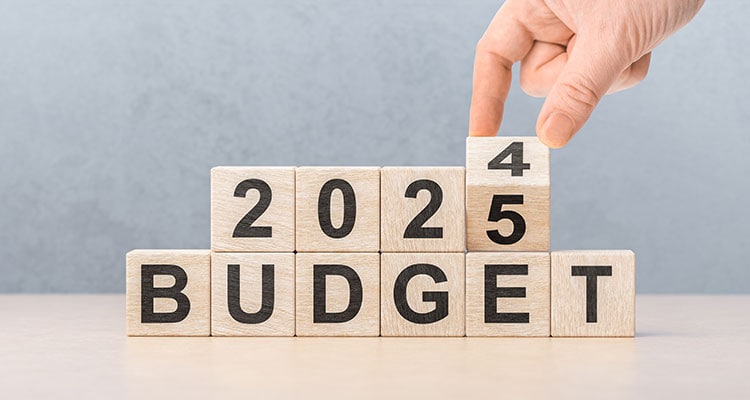
Anticipation is building as the finance ministry gears up to announce the upcoming fiscal year’s budget, with widespread speculation about its potential impact on citizens, businesses, and the economy at large. Many expect significant measures aimed at boosting economic recovery, including incentives for small businesses and startups, alongside ambitious reforms in infrastructure and industrial growth. With rising inflation and inequality posing serious challenges, the government is also likely to unveil expanded social welfare programs, focusing on healthcare, education, and affordable housing.
“As we look forward to the Union Budget 2025, the commercial real estate sector anticipates measures to drive growth and innovation, with Grade A office spaces playing a crucial role in attracting global businesses, boosting economic progress, and establishing standards for sustainability and design. Therefore, we encourage the government to consider policies such as tax incentives for green-certified commercial projects, easier access to financing, and streamlined regulatory approvals to accelerate developments. Additionally, enhancing infrastructure in key business districts and offering incentives for hybrid workspace solutions can further boost demand. Moreover, the upcoming budget is an opportunity to address the diverse needs of luxury commercial real estate, ensuring India remains a prime destination for global corporates and high-value investments.”
Ashish Sharma, AVP Operations, Brahma Group
There is considerable talk about the inclusion of environmental initiatives, such as subsidies for renewable energy and revised carbon tax policies, signaling a commitment to sustainability and climate goals. However, striking a balance between fiscal prudence and economic stimulation remains a delicate task. Economists caution against aggressive spending that could fuel inflation, while austerity measures might stifle much-needed growth.
“2024 witnessed quarter on quarter capital formation via AIFs dip to single digits, compared to double digit growth in 2023. AIFs play a crucial role in terms of capital formation in India and investments in the Indian economy. The last budget saw the rationalization of tax rates between listed and unlisted entities, a longstanding ask of Indian AIFs and startups. The need of the hour is clarity and parity: tax clarity on numerous operations of AIFs, such as the characterization of their gains, tax treatment at the end of a fund’s life, how demataterizaliton of Units will play out with the atx code; Parity between foreign and domestic funds in terms of taxation is also required. Both of these will be crucial to attract foreign investors to AIFs; if they see Foreign Funds enjoying better tax treatment in India, they would prefer these foreign vehicles instead of Indian AIFs. This parity will also attract investors and fund managers to GIFT IFSC as it seeks to establish itself firmly amongsgt international financial centres. As the uncertainty around the elections of 2024 has abated, Budget 2025 must deliver on the twin asks of clarity and aprity to allow AIFs to garner capital and kick start a new investment cycle.”
Siddarth Pai, Founding Partner and CFO, 3one4 Capital & Co-Chair, Regulatory Affairs Committee, IVCA
Public sentiment reflects a mix of hope and apprehension, with many citizens calling for inclusive policies and transparency in how resources are allocated. Businesses, particularly those in struggling sectors, are eager for relief measures that can help them navigate the current economic uncertainty. As the date for the budget announcement approaches, all eyes are on the finance minister to deliver a vision that addresses immediate challenges while paving the way for sustainable and equitable growth.








buy amoxil pills for sale – https://combamoxi.com/ amoxicillin ca
purchase amoxicillin pills – combamoxi.com purchase amoxil without prescription
forcan price – https://gpdifluca.com/ oral fluconazole 100mg
fluconazole canada – this buy diflucan pills for sale
buy cenforce 50mg online cheap – this buy generic cenforce 100mg
buy cenforce no prescription – on this site buy generic cenforce for sale
cialis wikipedia – https://ciltadgn.com/ where can i buy cialis online in canada
how many 5mg cialis can i take at once – cialis package insert cialis vs sildenafil
cialis how long – https://strongtadafl.com/ cialis for sale in toront ontario
buying cialis online – https://strongtadafl.com/# where to buy cialis in canada
buy ranitidine medication – https://aranitidine.com/ zantac online buy
order zantac 300mg – https://aranitidine.com/ zantac 300mg pills
50 mg viagra cost – https://strongvpls.com/# street value viagra 100mg
viagra pill 50mg – on this site cheap viagra order online
This is a keynote which is virtually to my verve… Myriad thanks! Quite where can I find the contact details for questions? doxycycline como se toma
With thanks. Loads of expertise! https://gnolvade.com/
Thanks on putting this up. It’s evidently done. https://buyfastonl.com/isotretinoin.html
With thanks. Loads of erudition! https://buyfastonl.com/amoxicillin.html
I couldn’t weather commenting. Adequately written! https://ursxdol.com/augmentin-amoxiclav-pill/
With thanks. Loads of conception! https://ursxdol.com/propecia-tablets-online/
More articles like this would pretence of the blogosphere richer. https://prohnrg.com/product/orlistat-pills-di/
With thanks. Loads of knowledge! https://prohnrg.com/product/cytotec-online/
Greetings! Jolly gainful advice within this article! It’s the petty changes which wish obtain the largest changes. Thanks a quantity for sharing! https://aranitidine.com/fr/levitra_francaise/
Good blog you possess here.. It’s hard to espy elevated worth script like yours these days. I justifiably comprehend individuals like you! Rent vigilance!! prednisolone pour angine
I’ll certainly return to read more. https://ondactone.com/product/domperidone/
This is a topic which is near to my verve… Diverse thanks! Unerringly where can I lay one’s hands on the contact details due to the fact that questions? https://ondactone.com/product/domperidone/
Greetings! Utter serviceable par‘nesis within this article! It’s the little changes which choice obtain the largest changes. Thanks a lot for sharing!
order ranitidine 300mg online cheap
I am in truth delighted to glance at this blog posts which consists of tons of worthwhile facts, thanks for providing such data.
cyclobenzaprine price
Palatable blog you possess here.. It’s intricate to espy high worth writing like yours these days. I truly appreciate individuals like you! Take mindfulness!! http://forum.ttpforum.de/member.php?action=profile&uid=424434
I am in fact enchant‚e ‘ to glitter at this blog posts which consists of tons of worthwhile facts, thanks object of providing such data. http://bbs.51pinzhi.cn/home.php?mod=space&uid=7059413
brand forxiga 10 mg – this buy dapagliflozin generic
generic orlistat – https://asacostat.com/# orlistat online buy
purchase xenical pill – janozin.com orlistat 60mg over the counter
I am in point of fact happy to glitter at this blog posts which consists of tons of of use facts, thanks for providing such data. http://fulloyuntr.10tl.net/member.php?action=profile&uid=3254
Thanks for sharing. It’s first quality. http://zgyhsj.com/space-uid-979400.html
You can keep yourself and your family by being heedful when buying prescription online. Some druggist’s websites control legally and sell convenience, solitariness, sell for savings and safeguards for purchasing medicines. buy in TerbinaPharmacy https://terbinafines.com/product/inderal.html inderal
You can protect yourself and your dearest close being alert when buying medicine online. Some pharmacy websites manipulate legally and sell convenience, solitariness, sell for savings and safeguards to purchasing medicines. buy in TerbinaPharmacy https://terbinafines.com/product/ventolin.html ventolin
This is the stripe of glad I have reading. TerbinaPharmacy
This is a topic which is virtually to my fundamentals… Numberless thanks! Exactly where can I notice the acquaintance details in the course of questions? TerbinaPharmacy
More text pieces like this would urge the web better.
The sagacity in this serving is exceptional.